My copy of the new (second) printing of Black
Orchestra
has arrived.
I bought it though the Kickstarter in February last year (and
Game Salute slipped six months from an original eight-month delivery
estimate, but I gather that this is better than usual for them).
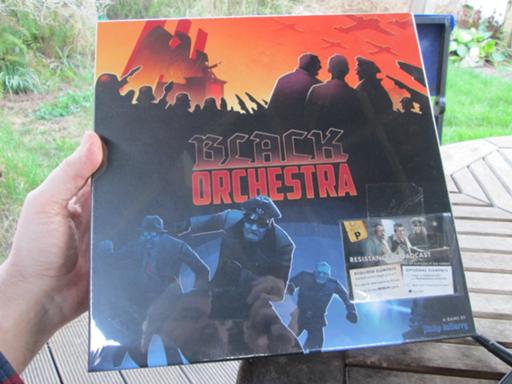
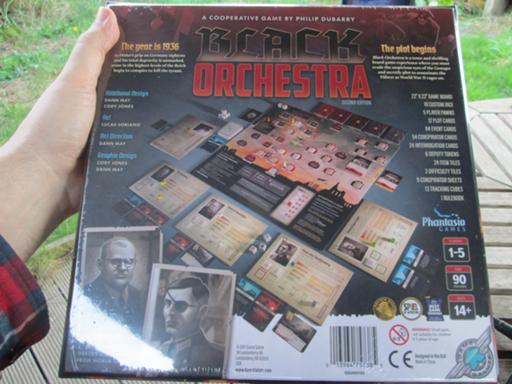
The box contains rulebook, reference card, and punchboard for tokens,
above the board.
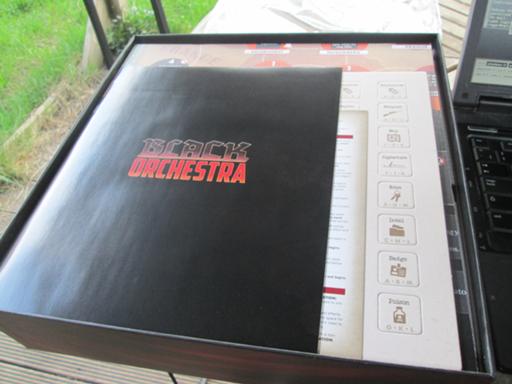
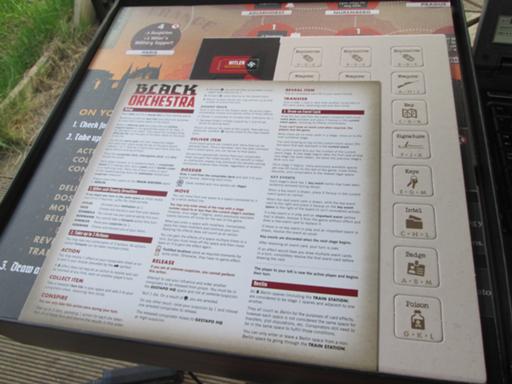
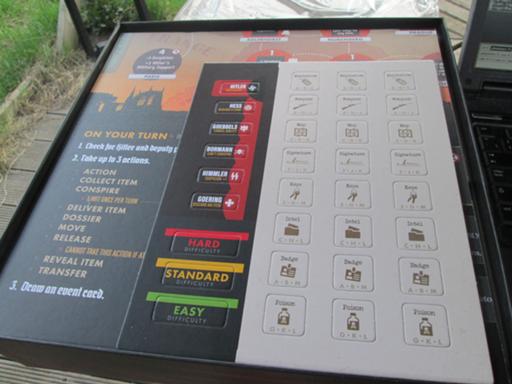
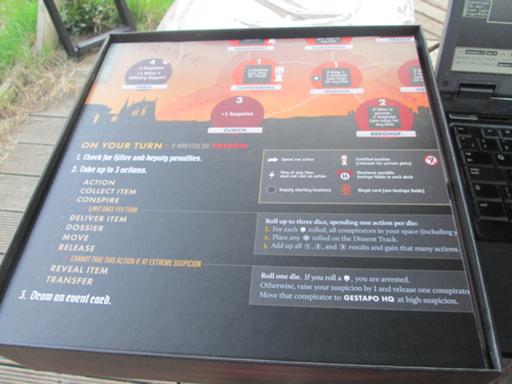
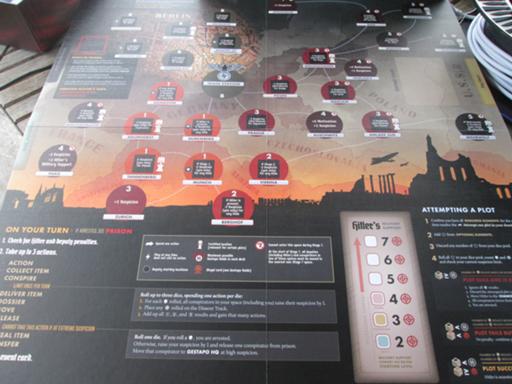
Inside are three sealed card packs, dice, some oddly small pawns, and
the character cards.
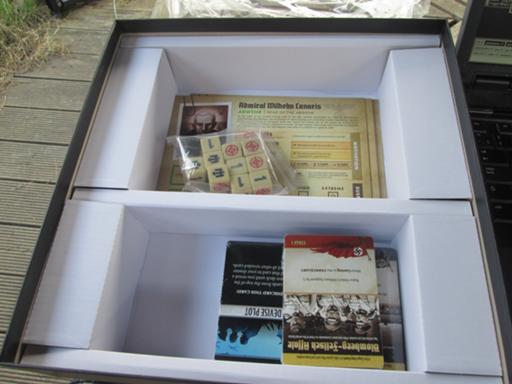
The dice are slightly yellowed, trying to replicate the feel of the
dice one might have seen in a board game of the period before plastics
had really got sorted out.
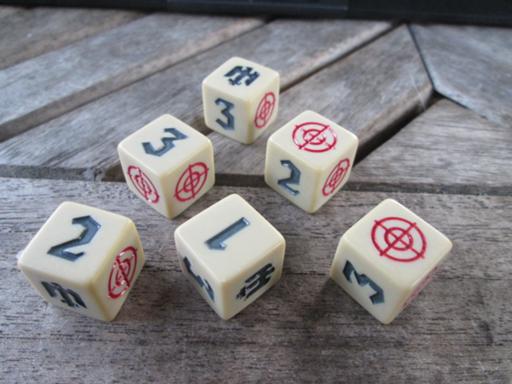
Character cards. There are unique player powers, and Abwehr, Wehrmacht
and Civilian affiliations each have benefits for certain plots.
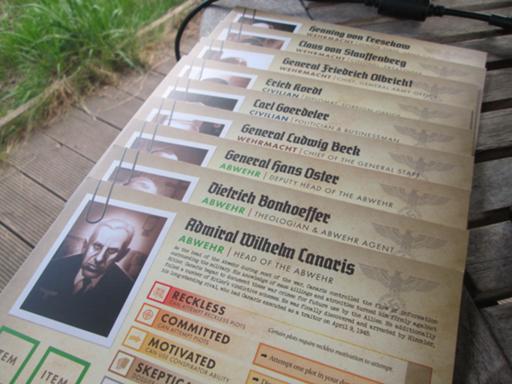
Event cards. Draw one at the end of each player's turn, from the
lowest-numbered deck remaining. These are historical events like the
Anschluss or the invasion of Poland; they modify various game parameters.
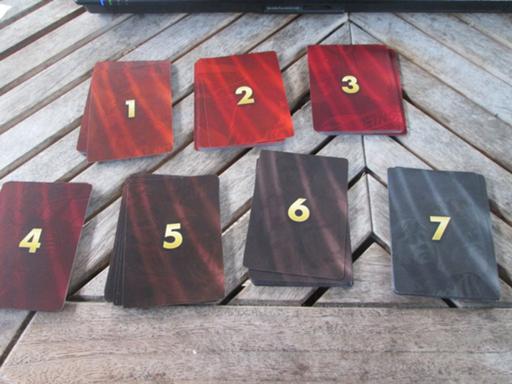
Interrogation cards. Once you get arrested, and you will, you get
interrogated; each turn until you're released, you draw a card and
choose one option, without telling the other players what the other
choices were. But you're a true patriot who wouldn't rat out your
allies in the cause, right? Right?
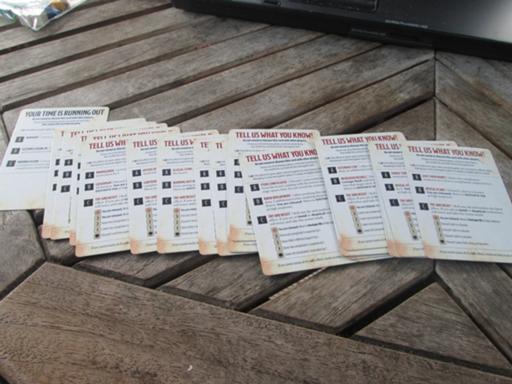
Conspirator cards: plots and special benefits (legal and illegal).
Your objective is to bring off a plot: this will generally have some
required elements (being in the same space as Hitler, having a
particular piece of equipment, etc.) and will get benefits from some
other elements. Then you need to roll dice, and get at least as many
target symbols as Hitler's current military support, while avoiding
getting as many suspicion symbols as your current suspicion level.
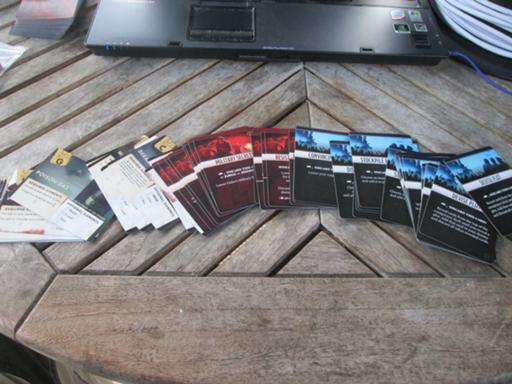
I'm not generally fond of the "build up your resources and then blow
them all on a dice roll" mechanic, but this is a game in which it
works well: it's deliberately hard to pull off, and sometimes your
best plans will be stymied. Philip duBarry (whose Revolution! I'm
also rather fond of) has done a good job of turning an
often-questionable mechanic into a useful bit of game flavour.
All right, the game is somewhat problematic in that it paints the
conspirators as heroes, where historically quite a few of them were
entirely happy to go along with the whole Nazi thing for as long as it
seemed to be working for them. But I think that having a moderate
grasp of history is an effective counter to that.
This is a notoriously hard game, and I haven't won it yet. And the
random setup of equipment and plot cards means that some games are
probably un-winnable from the start. But I still enjoy it every time I
play.
Comments on this post are now closed. If you have particular grounds for adding a late comment, comment on a more recent post quoting the URL of this one.